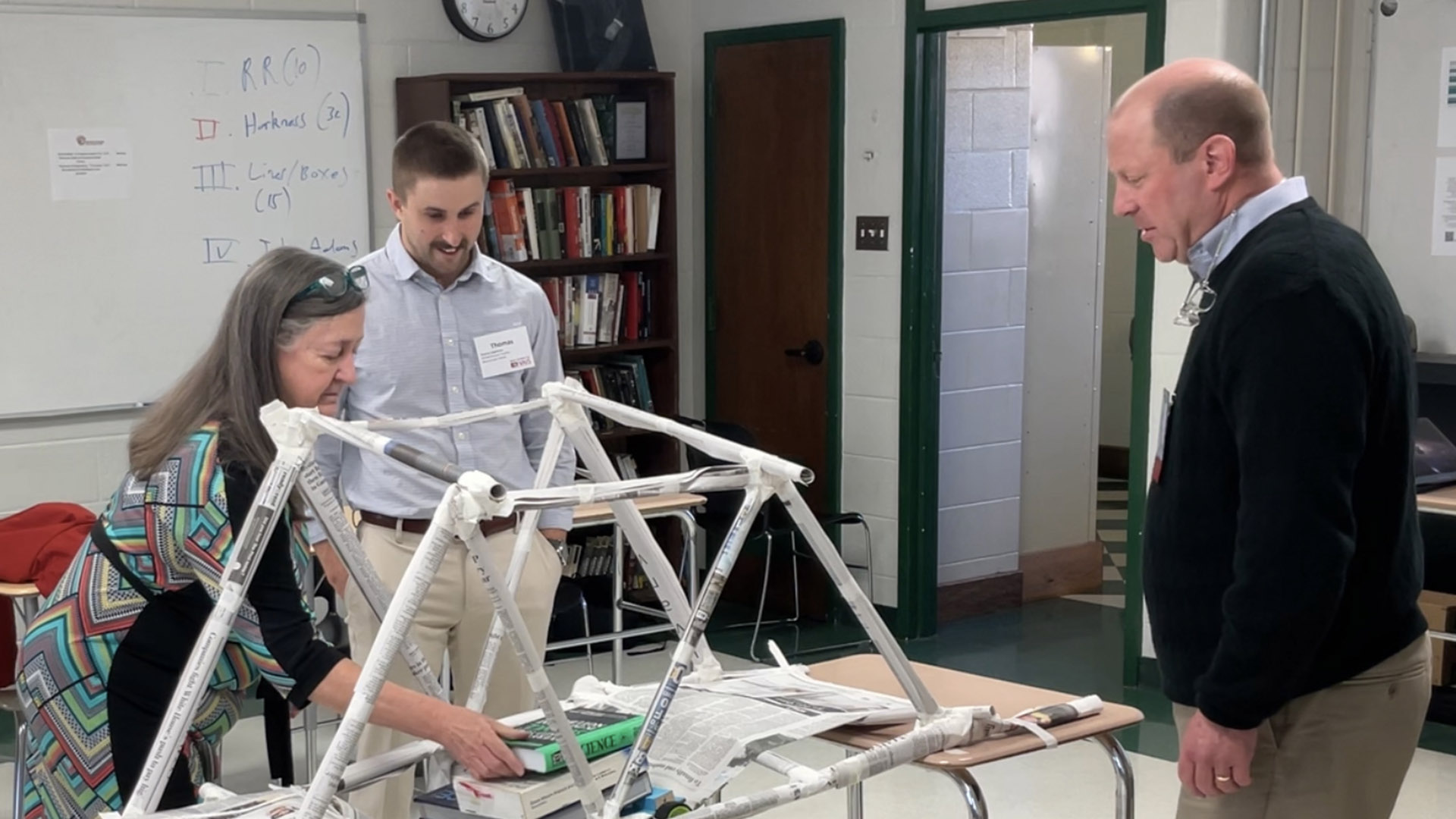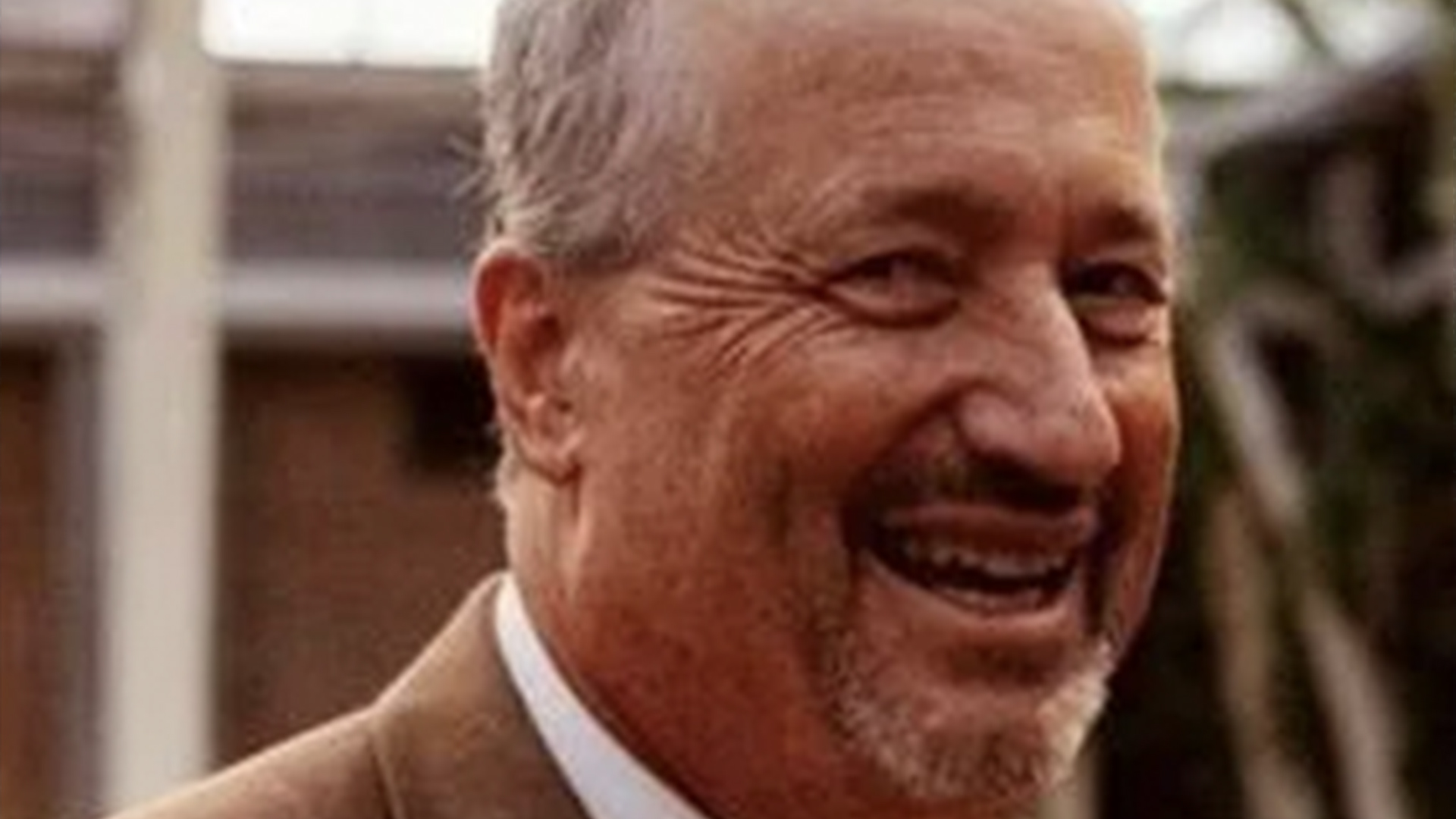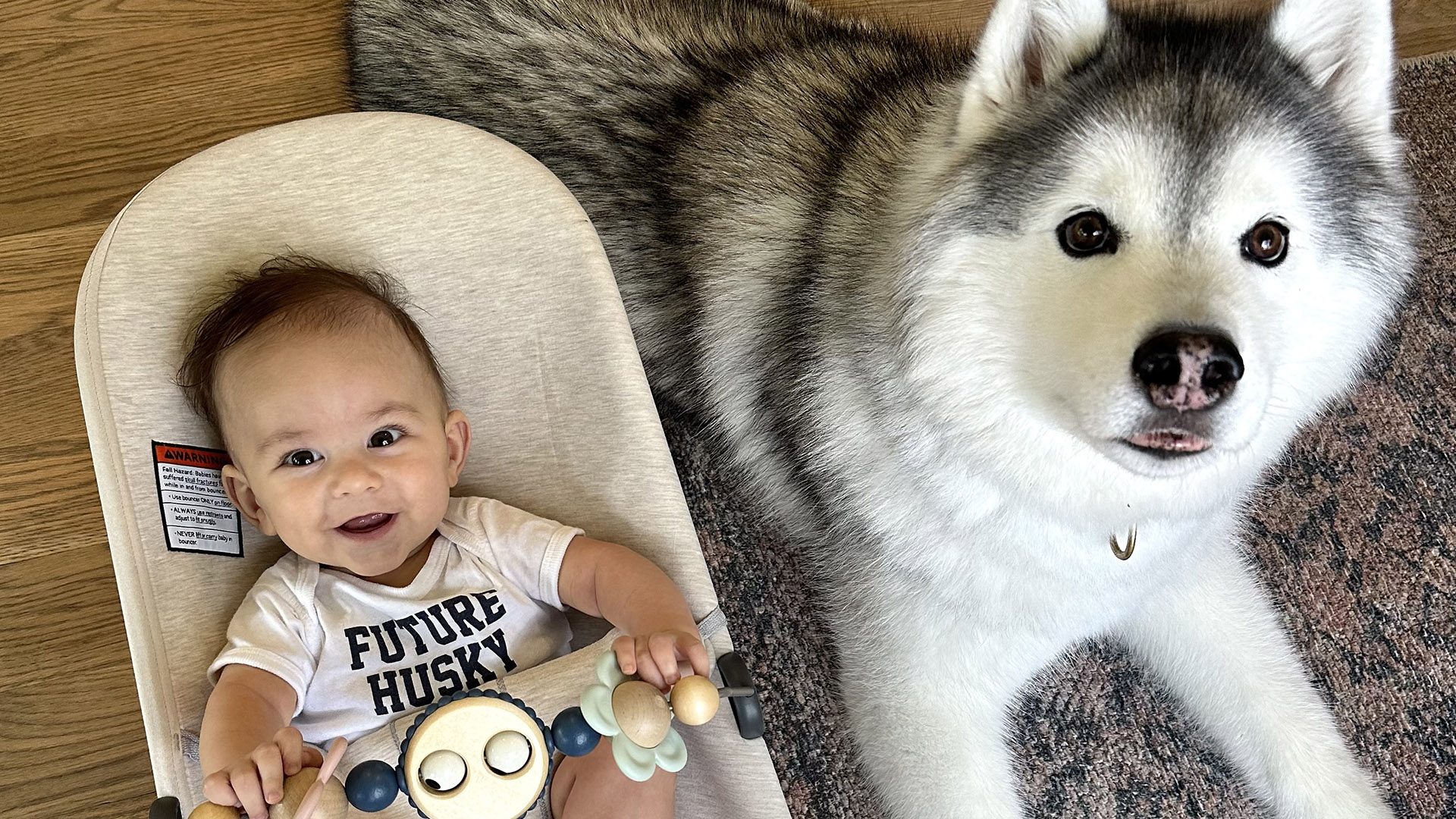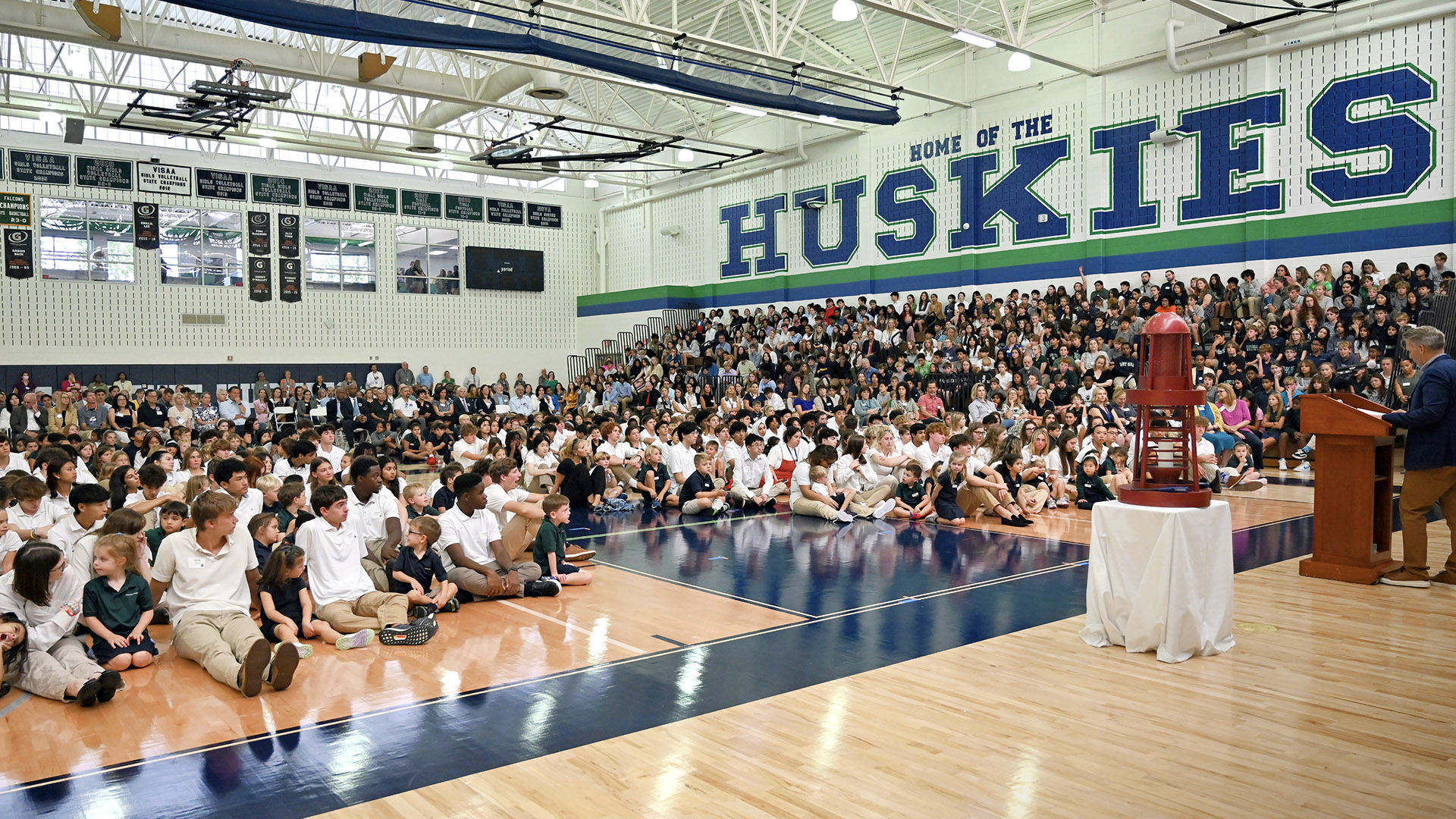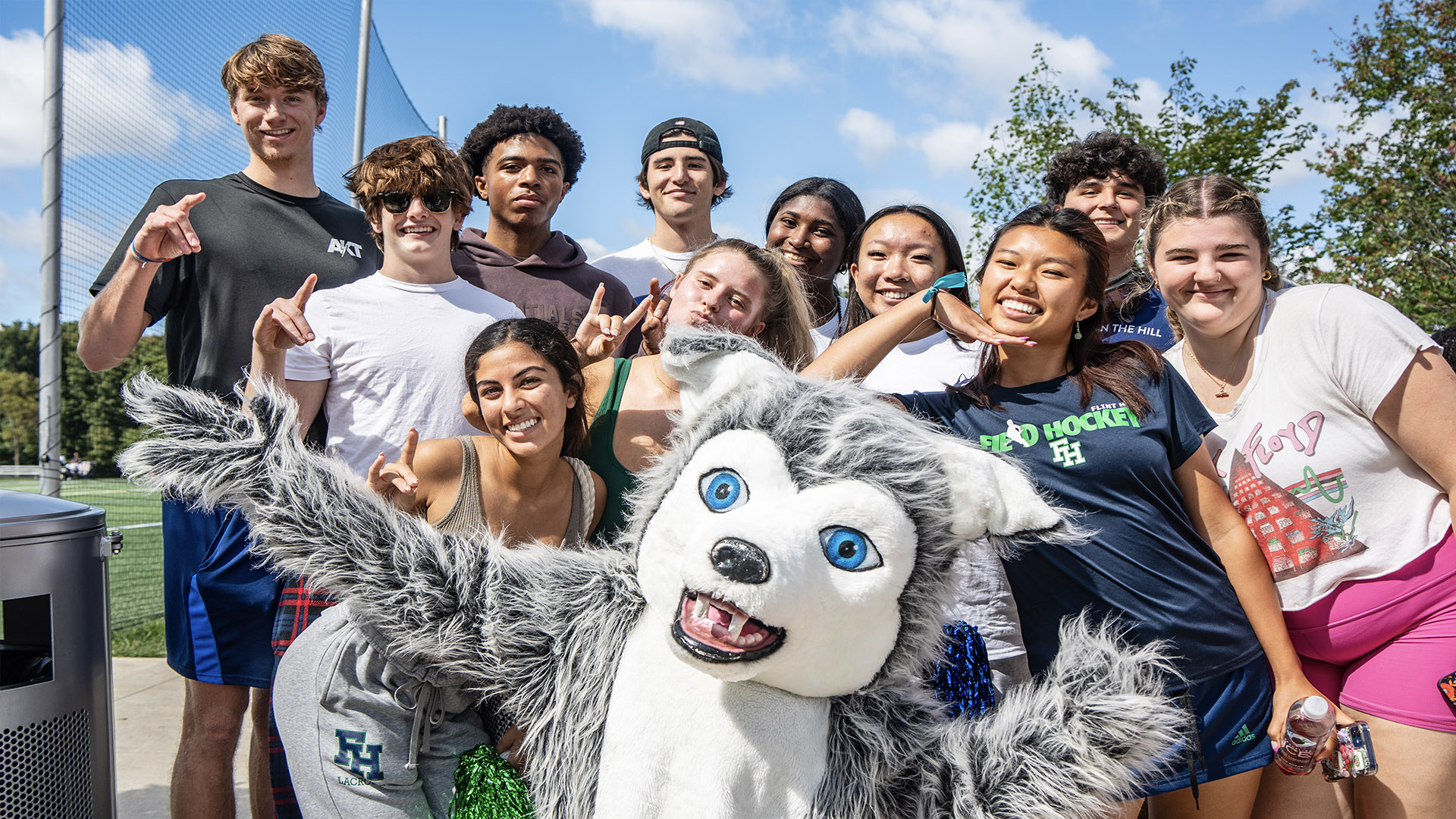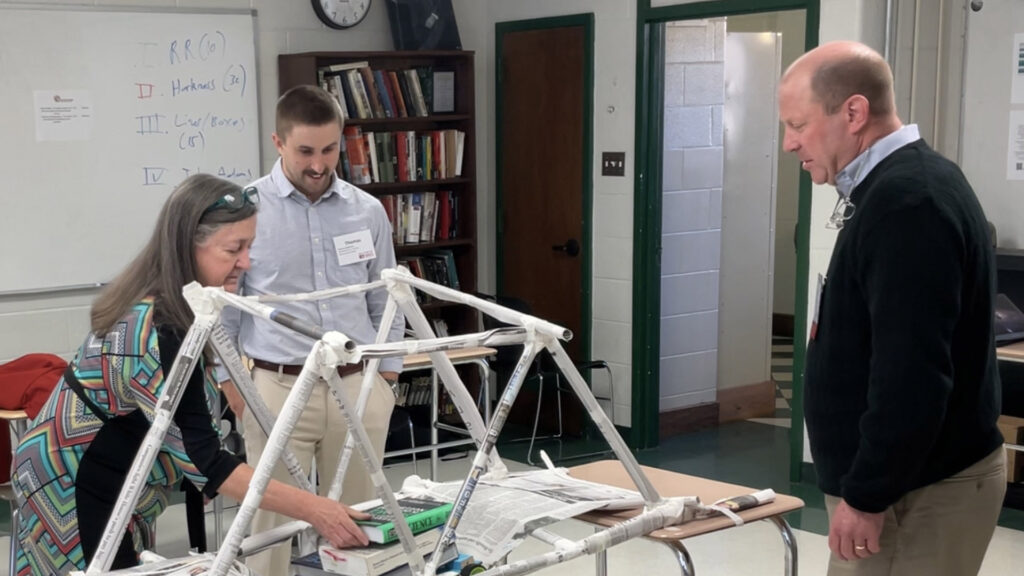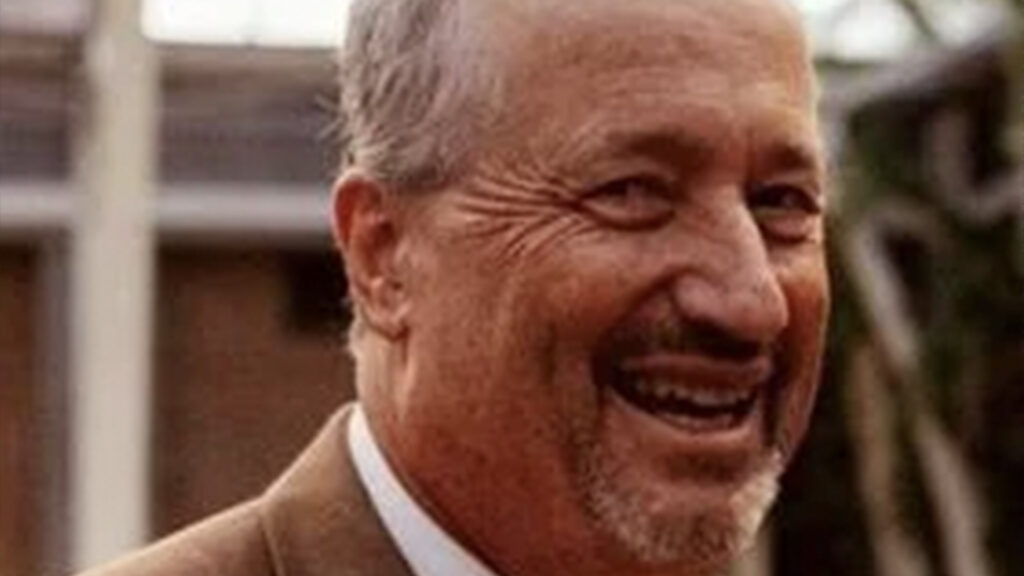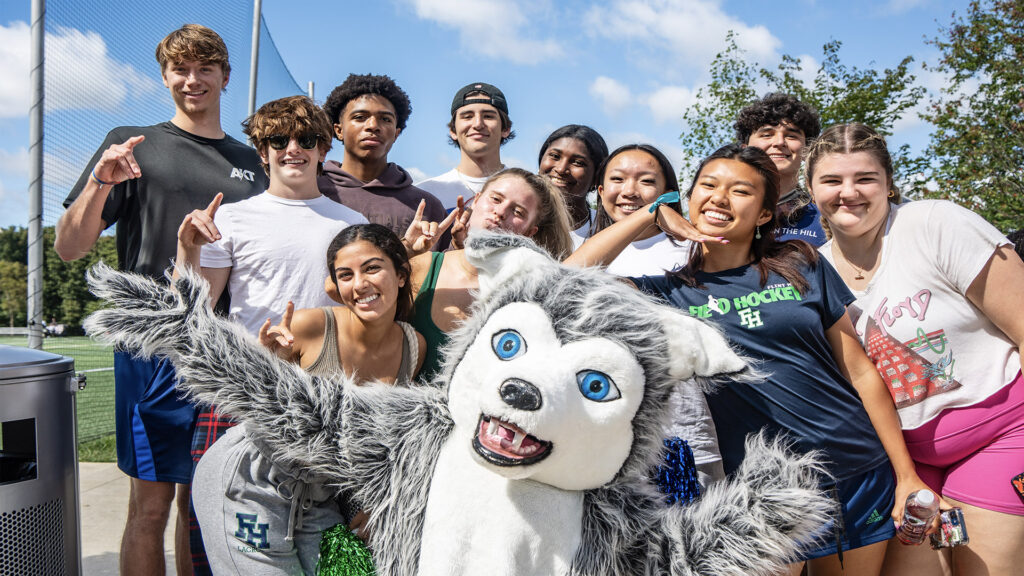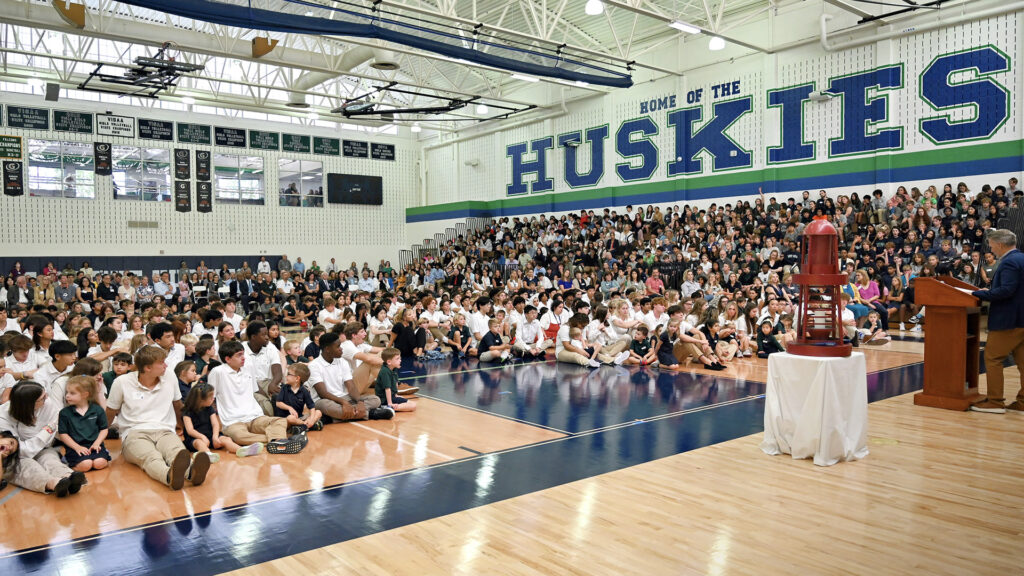From conversing with online chatbots to getting help from Alexa, many of us have already become accustomed to generative AI at home, but what about at school? Chat Generative Pre-trained Transformer — otherwise known as ChatGPT — is an online AI system that generates original content on command. Classroom use of ChatGPT along with other generative AI tools like Bard, Scribe, and DALL-E has been met with both hype and hysteria.
It’s being said that generative AI will have the same impact on education as the calculator. That’s an understatement, if you ask Middle and Upper School Computer Science Teacher Joelle Henry. “It’s way more disruptive than that,” she contends, predicting it’ll be more like the printing press and the internet in its potential to shake things up.
As she describes it, ChatGPT is essentially a computer that has been fed all the information available on the internet — from books and articles to images and videos — then trained to readily spit out content when prompted with human-like syntax. But while ChatGPT may sound like a human, it doesn’t think like one. “It can’t actually think,” Joelle says. And — in its current form — it’s prone to making mistakes. Referred to as hallucinations, mistakes are rendered with 100% confidence. That means students and teachers need critical thinking skills to analyze results.
Joelle thinks much of the anxiety surrounding ChatGPT stems from educators not having the time to learn more about it. “It’s moving at such a fast pace, and teachers are understandably concerned about things like safety, accountability, and transparency.”
All things considered, Joelle anticipates the inevitability of AI’s impact on education with optimism. “Generative AI can grade PDFs of physics worksheets that have graphs and handwritten answers,” Joelle says. “It’s better for AI to complete those tasks so teachers can focus more energy on students.” In November, she spoke on this topic at the Virginia Association of Independent Schools’ annual conference in Richmond. Her presentation, “Shaping Tomorrow’s Classrooms: Harnessing the Power of AI in Education” outlined the opportunities generative AI offers.
Aaron Proctor, who is in his first year at Flint Hill as the director of academics, believes that once teachers figure out how to leverage its advantages and mitigate its risks, generative AI can be a helpful resource for both students and teachers. As of press time, there is no fail-safe way to test whether AI has been used on assignments, although there are apps that purport to do so. For Proctor (he goes by his last name), this underscores the need to expose students to AI in a setting where teachers can guide them toward ethical usage. “We need to teach our kids how to cite it appropriately and how to scrutinize the content,” he says. And since the internet is replete with bias, so is generative AI. Students will need to learn how to spot it.
Technology and Instruction Department Chair Jennifer McKain is in the same camp as Proctor and Joelle. In her role leading the Technology and Instruction team at Flint Hill, Jennifer works with teachers to implement technology tools that both improve their practice and equip students to engage a tech-savvy world. She envisions a future where the workforce calls for the ability to use AI effectively and sees tremendous value in staying up to speed with it. She suggests that “teachers can use it to refine the questions they pose in the classroom and uncover richer layers of analysis.” Jennifer anticipates that teachers will soon deploy generative AI to write rubrics, create worksheets, and grade papers, knocking out time-intensive tasks that take them away from students.
This fall, Joelle pitched the idea for an Upper School course called Introduction to Artificial Intelligence and used AI to write the proposal. “I uploaded our proposal form to ChatGPT, told it what level the students would be at, the duration of the course, and what topics I wanted to cover.” The site then generated a proposal, which she reviewed, tweaked, and submitted. The course was approved for next year and will offer students the opportunity to study fundamental AI concepts, machine learning algorithms, and deep learning techniques – all with an emphasis on practical implementation and project-based learning.
Proctor is excited about AI’s potential to enhance the experience for teachers and students at Flint Hill. He’s not worried that AI will supplant the role of teachers in the classroom. “The highest quality education will always involve authentic interpersonal connection between teachers and students,” he says. “What we teach, how we teach, and how we grow professionally — all three of these can be aided by generative AI.”

The highest quality education will always involve authentic interpersonal connection between teachers and students. What we teach, how we teach, and how we grow professionally — all three of these can be aided by generative AI.
–Aaron Proctor, Director of Academics
Educators have certainly traversed sudden landscape shifts before. When electronic mail streamlined student-teacher communication and search engines turned encyclopedias into artifacts, a generation of students had more time to soak up what they were learning. AI seems to offer this generation another leveling-up of their education.
Communicating with Robots
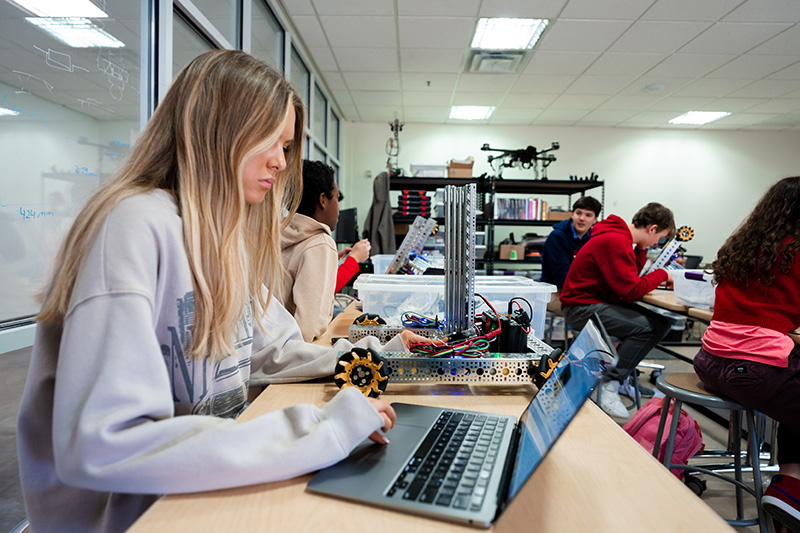
As with humans, robots function better with effective two-way communication. Upper School computer science students learn that the more proficient they become with a language that robots comprehend, the more meaningful the response. In AP Computer Science class, students use Java language, object-oriented programming that gives robots directions to make specific movements.
Computer programming is one key part in the complex world of robotics. Another involves design engineering and creation of mechanical components — at Flint Hill, the Innovation Department oversees all of those areas of study to provide a robust and comprehensive program. As students progress into more advanced classes, two tracks — programming and design — are offered to hone their skills in those specialized areas.

One of the most challenging courses is Advanced Aerial Robotics Honors class, where students work in teams to design, build, and program a robot to face off in robotics competitions with other schools. “The programming team competes in their own programming competition while also writing the code for a drone built by the hardware team. In the spring, the whole team competes with the drone,” says Vicki Knickerbocker, Middle and Upper School Innovation Department Chair and Computer Science Teacher.
Ben Hinrichs ’24 is currently enrolled in both courses. “Computer Science is challenging, but I’m learning so much,” he reports. “We took a diagnostic test at the beginning, and I knew nothing. If I took that test now, I’d knock it out of the park.” He appreciates that the coding skills he’s learning in Computer Science transfer over to his Aerial Robotics class, which he describes as “a lot of fun.” He also relishes the job-like environment Aerial Robotics offers. “Everything is team-based, and we have to learn to accomplish goals together.” Ben is a team lead and has banked valuable experience managing people and delegating tasks. Students in the class use Slack for messaging each other and Trello for project management, which means they’ll have competence with those widely used workplace systems once they get into the workforce.
These Innovation students aren’t just learning programming languages and engineering principles needed to work with robots; they’re refining skills needed to succeed and make an impact in our increasingly digital world.
“Lucky” is how Andrew McKee ’24 describes the feeling of being one of the four history students chosen to…
In 1956, Flint Hill Preparatory School was founded in Fairfax as a K-12 private school for white students. That…
The wisdom and skill of Flint Hill employees don’t just benefit students and colleagues on campus. Our teachers and…
In September, the Flint Hill community was saddened to learn about the loss of former Athletic Director Win Palmer….
From conversing with online chatbots to getting help from Alexa, many of us have already become accustomed to generative…
WANT TO BE IN THE MAGAZINE? To be included in Alumni Class Notes, email the Alumni Office at alumni@flinthill.org with news of a union, birth...
Tradition and Innovation On September 13, Head of School Patrick McHonett led the All-School Gathering, the first assembly of…
From preparing for the large crowd to putting the “spirit” in Spirit Alley, orchestrating Homecoming at Flint Hill is…
This Fall and Winter brought several opportunities for our alumni to get together. From reuniting at Homecoming and our…


